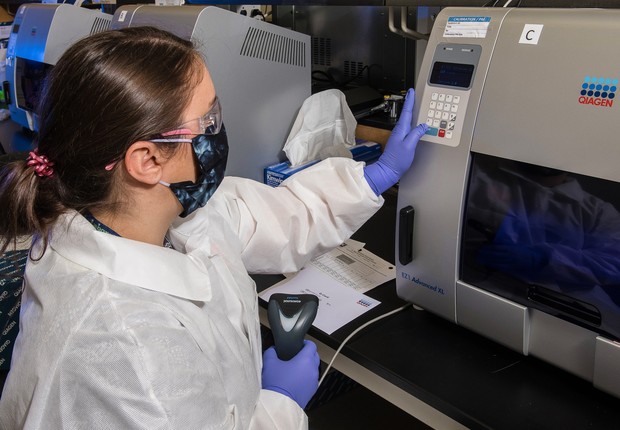
Researchers studying the origin of new hepatitis (Image: Unsplash)
The World Health Organization reported, on Friday, 15, that it closely monitored the emergence of cases of infection with the virus. acute hepatitis Of unknown origin in children. 74 have already been identified and investigated since January by the UK Health Safety Agency (UKHSA). The World Health Organization does not recommend restrictions on travel to countries with cases and emphasizes that the priority is to determine the cause of infection.
Viral hepatitis is an infection of the liver, which is mostly silent. There may be symptoms such as fatigue, fever, malaise, dizziness, nausea, vomiting, abdominal pain, yellow skin and eyes (jaundice). According to the World Health Organization, in UK cases, laboratory tests have ruled out the presence of hepatitis A, B, C, D and E viruses.
The picture of European children is one of acute infection. Many have jaundice, which is sometimes preceded by gastrointestinal symptoms, especially in children up to 10 years of age. Some patients needed to be transferred to specialized infant liver units and six patients required a transplant. No deaths were recorded as of April 11.
Following the UK’s warning, Ireland and Spain have also reported confirmed and suspected cases, according to the World Health Organization. The authorities in these countries are checking. Among the cases in the UK, the World Health Organization said, many were infected with adenovirus (a family of common viruses that usually cause mild illness) or the virus that causes Covid-19. Recently, there has been an increase in the activity of adenoviruses in the region, which are circulating with SARS-CoV-2.
To the extent that they are investigated as potential causes, the role of these viruses in pathogenesis (the mechanism by which disease develops) remains unclear. No other epidemiological risk factors have been identified, including recent international travel. The UKHSA has stated that there is no link to the Covid vaccine – and none of the confirmed cases have had the vaccination.”
Traditional hygiene measures, such as good hand washing and respiratory hygiene, help reduce the spread of many of the infections we investigate. “Caregivers, be on the lookout for signs of hepatitis and contact the relevant healthcare professionals.
According to the WHO, given an increasing trend in cases since last month in the UK, as well as extensive research, it is likely that more confirmations will occur before an etiology (cause) is established. WHO encouraged countries to identify, investigate and report potential cases.

